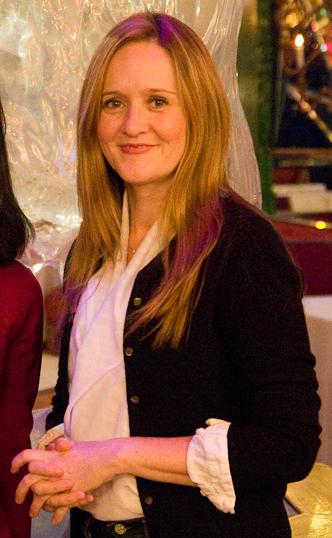What does it say about our nightmarish news cycle when a celebrity apology feels like a breath of fresh air? Maybe it’s the 2018 talking, but “refreshing” was the first word that came to my mind when watching Samantha Bee’s opening monologue on her talk show. Bee received backlash (and some outspoken support) after insulting Ivanka Trumps in vulgar terms for tweeting a picture with her child while immigrant parents were separated from their children. Like most celebrity apologies, Bee’s apology was both business calculation and a moral one — some companies suspended advertising, and many conservative commentators said that TBS should cancel the show. Still, her statement stood out, mostly because, as critic James Poniewozik pointed out, Bee was “specific about what she was sorry for and what she wasn’t, [and] about who she was apologizing to and who she wasn’t.”
Bee started out her monologue by saying that she “crossed the line” by using the epithet as an insult, instead of “reclaiming it.” She also apologizes to the “many women who have heard this word at the worst moment of their lives,” and says that she wants to avoid spreading the pain and ugliness that comes from sexist language. This distinction is an important one — and a rebuke against critics that argue a pearl-clutching opposition to profanity without considering why — and when — this word might be offensive in the first place. In the funniest and most telling line of her message, Bee says, “Many men were also offended by my use of the word. I do not care about that.”
This joke is more than a cheeky middle finger — it’s an acknowledgment that in Trump’s America, women tend to get the last laugh. Though both male and female comedians have spent the past three years gleefully mocking President Trump, it’s female comics who tend to attract the lion’s share of attention and controversy. Kathy Griffin posted a tweet of her holding a bloodied, decapitated version of Trump’s head. Melissa McCarthy became a viral sensation by playing Sean Spicer — a feminized portrayal that reportedly bothered the President. Michelle Wolf used her time at the White House Correspondent’s Dinner to offer pointed critiques at female members of the Trump Administration.
These comments varied in nastiness and in public reaction — Bee and Griffin quickly apologized, while McCarthy and Wolf pointedly did not. But all four women received some kind of negative response — sometimes from the media, sometimes from the administration itself and usually from both. These jokes provoke a faux-moral reckoning about civility, political correctness and feminism. There are plenty of valid, interesting questions one could ask about these examples. What is and is not off limits when making fun of women in power? What are the ethics of telling jokes — and how do those ethics change when a comedian “punches up,” attacking a powerful status quo? What, exactly, are these comedians trying to achieve? (Perhaps the greatest sin of Bee’s epithet — and the flurry of responses like this very article — is that it distracted from the countless pressing issues that are essentially ignored every day).
Unfortunately, much of the “dialogue” about female comics on the right is high on partisanship and low on substance. Many of the harshest critiques of these (admittedly very liberal) comedians come from ardent supporters of the President. Unlike late-night hosts and “Saturday Night Live” writers, President Trump has an enormous influence on politics, but he still acts as an insult comic-in-chief. His most pungent material is easily more offensive than Michelle Wolf saying that Sarah Huckabee Sanders burns facts to create a perfect smoky-eye.
Lurking underneath this outrage is a sexist assumption that female comedians have some sort of obligation to play nice. Bee’s insult — and her entire brand of comedy — is undoubtedly rude. But political comedy, like politics itself, rarely rewards politeness, and male comedians who go for the jugular are often celebrated as renegades and truth tellers. This double standard is not new. Tina Fey pointed out that certain commentators called her impersonation of Sarah Palin too harsh, while Chris Rock called George W. Bush “retarded” on stage with fewer repercussions. This kind of misogyny is just one of the many barriers female comedians face. In the Trump Era, the stakes are perilously high and every day a new public figure is offered as a sacrifice in the culture war. It feels necessary for comedians — yes, even the mean ones — to provide a voice of reason and even offer moral pleas. As Bee said in her closing remarks: “Civility is just nice words. Maybe we should all worry a little bit more about the niceness of our actions.”


